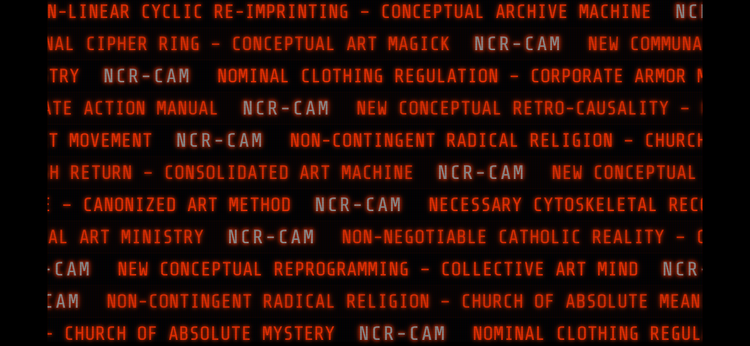Peace

Cultures don't inherently breed hatred for others, but complex social, historical, and psychological factors can contribute to intercultural and intergroup tensions. Here are some reasons why cultures might exhibit animosity or hostility towards other cultures:

1. **Historical Conflicts:** Historical events, such as wars, colonization, and oppression, can create deep-seated grievances and hostilities between cultures that persist over generations.
2. **Fear of the Unknown:** Fear and prejudice often arise from lack of familiarity with people from different cultures. Stereotypes and misinformation can lead to mistrust and hatred.
3. **Economic Competition:** Economic disparities and competition for resources can lead to resentment and negative attitudes towards other cultures.
4. **Nationalism and Identity:** Strong national or cultural identities can foster an "us vs. them" mentality, making it easier to dehumanize or vilify other cultures.
5. **Political Manipulation:** Leaders or political figures sometimes use cultural differences to advance their own agendas or deflect attention from domestic issues, which can exacerbate tensions.
6. **Religious or Ideological Differences:** Divergent religious or ideological beliefs can lead to conflict, as people may see their values as incompatible with those of others.
7. **Media and Propaganda:** Biased or inflammatory media coverage can influence public opinion and perpetuate stereotypes and prejudice.
8. **Psychological Biases:** Cognitive biases, such as the in-group bias, can lead people to favor their own culture while displaying prejudice towards outsiders.
It's important to note that these factors are not exclusive to any particular culture and can manifest differently in different contexts. Cultures can also promote understanding, cooperation, and tolerance when people actively work to bridge divides, learn about one another, and seek common ground. Efforts to promote intercultural understanding, empathy, and dialogue are essential in countering the breeding of hatred and promoting harmony among cultures.

The optimal path for being a good human and doing the most good in the world often aligns with principles of ethics and moral philosophy. While it varies for individuals, some general guidelines for pursuing this path include:
1. Empathy and Compassion: Cultivate empathy and compassion for others. Understand and care about the well-being of people, animals, and the environment.
2. Altruism: Seek opportunities to help others selflessly without expecting anything in return. Acts of kindness and charity can make a positive impact.
3. Ethical Decision-Making: Make ethical choices in your personal and professional life. Consider the consequences of your actions and strive to do what is right and just.
4. Sustainability: Contribute to a sustainable and environmentally conscious way of living to ensure the well-being of future generations.
5. Lifelong Learning: Continuously educate yourself and remain open to diverse perspectives. Understanding the complexities of the world can help you make informed decisions for the greater good.
6. Social Responsibility: Engage in social and community activities that address social issues and promote positive change.
7. Advocacy: Speak up for causes that matter to you and work towards social justice, equality, and human rights.
8. Philanthropy: If possible, consider supporting charities, nonprofit organizations, or causes that align with your values and aim to make a positive impact.
9. Respect and Tolerance: Show respect and tolerance for diverse cultures, beliefs, and opinions. Promote understanding and peaceful coexistence.
10. Self-Reflection: Regularly reflect on your actions, motivations, and their impact on others. Be open to personal growth and improvement.

Remember that the optimal path for doing the most good can vary depending on your skills, resources, and opportunities. Ultimately, it's about making choices that contribute to the well-being and betterment of the world in a way that resonates with your values and principles.
Promoting peace, stability, prosperity, and the well-being of both humans and the planet involves a set of values and principles that are often considered essential. While objectivity in this context can be challenging due to the subjectivity of values, here are some broadly accepted values and principles that aim to foster a better future for all:
1. **Cooperation:** Encouraging cooperation and collaboration on a global scale can help address complex issues like climate change, poverty, and conflict.
2. **Sustainability:** Promoting sustainable practices in all aspects of life, from energy and agriculture to resource consumption, is crucial for the long-term health of the planet and its inhabitants.
3. **Justice and Equality:** Striving for social justice and equality ensures that opportunities and resources are distributed fairly, reducing conflicts and promoting stability.
4. **Education:** Investing in education, particularly in underserved regions, can empower people to improve their own lives and contribute positively to society.
5. **Human Rights:** Upholding fundamental human rights for all individuals, regardless of their background, is essential for peaceful coexistence.
6. **Environmental Stewardship:** Taking responsibility for the health of the planet by protecting ecosystems, biodiversity, and mitigating climate change is necessary for the well-being of future generations.
7. **Innovation and Technology:** Advancing science, technology, and innovation can lead to solutions for many of the world's problems, from clean energy to healthcare advancements.
8. **Diplomacy and Conflict Resolution:** Fostering diplomacy and peaceful means of resolving conflicts can prevent violence and instability.
9. **Community and Global Engagement:** Encouraging individuals, communities, and nations to actively engage in global issues and work together to solve problems.
10. **Transparency and Accountability:** Holding individuals, organizations, and governments accountable for their actions ensures that decisions are made in the best interest of the planet and its inhabitants.
It's important to note that these principles may need to be adapted to specific cultural, regional, or contextual factors. Moreover, the real challenge is in implementing these principles effectively and ensuring that they are not just ideals but actionable values that guide our decisions and actions for a better future.

In this utopian vision of a future human culture that prevails and fosters peace, sustainability, and tolerance over millions of years, several key ideals might be prominent:
1. **Global Cooperation:** This culture values global cooperation, recognizing that the challenges of a rapidly changing world can only be addressed through unity and collaboration. It actively seeks to solve global problems such as climate change, poverty, and conflict through international partnerships.
2. **Sustainability:** Sustainability is a fundamental pillar of this culture. It is deeply committed to protecting the environment and ensuring that resources are used in a way that doesn't compromise the well-being of future generations. This includes renewable energy, responsible resource management, and conservation efforts.
3. **Cultural Diversity and Inclusivity:** Embracing and celebrating cultural diversity is a core value. This culture respects and values different traditions, languages, and beliefs, recognizing that this diversity enriches human existence. Inclusivity and respect for all individuals, regardless of their background, are paramount.
4. **Education and Knowledge Sharing:** This culture places a high premium on education and knowledge sharing. It ensures that every individual has access to quality education, and it promotes a culture of lifelong learning. Information and expertise are freely shared to empower people and solve global challenges.
5. **Conflict Resolution and Peacebuilding:** Conflict is addressed through peaceful means, with a strong focus on diplomacy, mediation, and reconciliation. The culture actively works to prevent conflicts and resolve existing ones, aiming for a world free from violence and war.
6. **Technological Advancements for Good:** Technology is harnessed for the betterment of humanity and the planet. Scientific and technological advancements are used to address pressing global issues, improve living standards, and enhance the quality of life without harming the environment.
7. **Human Rights and Equality:** Human rights are universally upheld, and all individuals are treated with respect and equality. Discrimination and injustice are actively combated, and systems are designed to ensure fairness and social equity.
8. **Community and Well-being:** Strong communities are at the heart of this culture, and they work together to provide support and a sense of belonging for all members. Well-being, both physical and mental, is a top priority.

9. **Art and Culture:** The culture places a high value on the arts and cultural expression, recognizing their ability to inspire creativity, foster understanding, and bring joy. Cultural expression is encouraged and supported.
10. **Transparency and Accountability:** Transparency and accountability are vital in all aspects of society, from government and business to individuals. The culture values honesty, integrity, and ethical behavior.

While creating such a utopian culture is a monumental challenge, it's important to remember that ideals like these serve as a guiding light, inspiring people to work toward a better future and fostering positive change. The path toward such a culture would require continuous effort, adaptation, and a commitment to the well-being of all life on Earth.






Member discussion